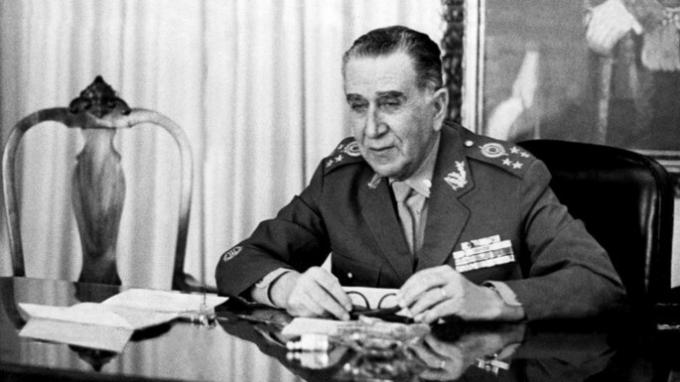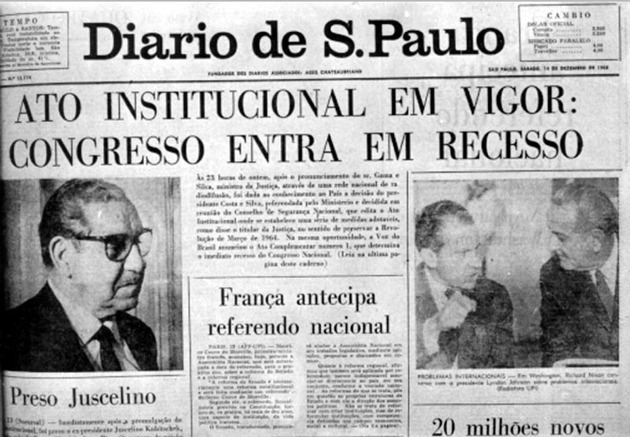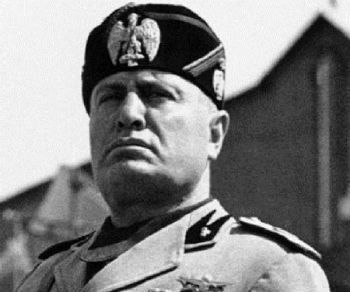emile Garrastazu medical he was the 28th president of the Republic of Brazil and governed the country between October 30, 1969 and March 15, 1974.
The Medici government went down in history as one of the most repressive military regime and was called "Years of Lead".
His mandate was marked both by the increase in repression and the growth of the economy, a phenomenon that was known as the "Economic Miracle".
medical government

The Medici government succeeded that of Costa e Silva. One of the new president's first measures was to incorporate Institutional Act No. 5 (AI-5) into the Brazilian Constitution.
AI-5 suspended the right to vote and be voted in union elections, restricted the right to carry out political activities - as well as demonstrations - and institute probation for the citizens.
Censorship and political repression were common during the Medici government, marked by rural guerrillas, in Ribeira (SP) and the Araguaia Guerrilla (PAN).
In the urban region, the reaction to the military regime was verified by the increase in the number of bank robberies and plane hijackings.
Abduction of American diplomat Charles Elbrick
Political tension rose in 1969 with the kidnapping of US ambassador Charles Burke Elbrick. This crime is considered the first kidnapping for political purposes in the country.
Those responsible were members of the MR8 (Revolutionary Movement 8 of October), formerly DI-GB (University Dissidence of Guanabara), together with the ALN (National Liberation Action).
The objective was to exchange the ambassador for 15 political prisoners and publicize a manifesto against the growth of repression and restriction of freedom in Brazil by the military regime.
In response to revolutionary activity, the government increased repressive actions and recorded the highest number of deaths from the dictatorship.
Interestingly, Congress remained open and no politicians had their mandate revoked.
Medici government: economic miracle

"Economic miracle" is a reference to the high growth of the country's economy in this period. The expression referred to the euphoria of economic prosperity, which would have happened without planning.
However, growth was based on heavy loans taken out with the Inter-American Development Bank, which substantially increased the Brazilian external debt.
Likewise, during the Medici government, various bodies were created to occupy and explore the Amazon. Of these, the Incra (National Institute for Colonization and Agrarian Reform) and the Rondon Project stand out. Construction of the Transamazônica, Cuiabá-Santarém and Manaus-Porto Velho highways also began.
In addition, the Ilha Solteira hydroelectric plant, the largest in Latin America, the Paulínia (SP) refinery and the bridge connecting the city of Rio de Janeiro to Niterói were inaugurated. All these great works were used to convey the idea of a country in progress and united.
Medical Biography
A career soldier, Médici was born on December 4, 1905, in the city of Bagé, Rio Grande do Sul. His father was an Italian immigrant and his mother was Uruguayan, with Basque ancestors.
He studied at Colégio Militar de Porto Alegre and Escola Militar de Realengo, in Rio de Janeiro.
He actively participated in the 1930 revolution, alongside Getúlio Vargas. Likewise, in 1932, he fought against the Constitutionalist Revolution, which took place in São Paulo and supported the 1964 coup.
He held the highest positions in the Army, including that of head of the Agulhas Negras Military Academy. He was also a military attaché at the Brazilian embassy in Washington and president of the National Information Service (SNI).
With Costa e Silva's illness, the name of Médici was nominated by the Junta Militar for the post of President of the Republic. After the end of his term, Médici passed the presidential sash to the president Ernesto Geisel.
Upon leaving the presidency, Médica walked away from public life and died in Rio de Janeiro on October 9, 1985.
There are more texts on this subject for you:
- Military Dictatorship in Brazil
- 1964 Military Coup
- Amnesty Law
- Songs from the Military Dictatorship



